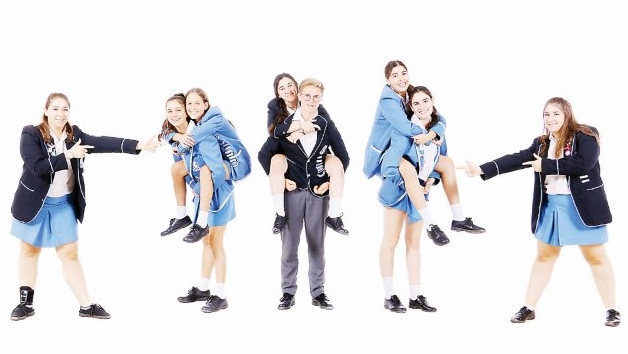News
Double trouble and twice the fun
Matric can be a lonely journey, but not if you are a twin. For most in Grade 12, the time outside of school is often spent alone with reams of notes and heaps of past exam papers for company.

JORDAN MOSHE
When you have a twin, however, the experience can be quite different, giving you an ally who understands your struggle perhaps more than anyone else.
Such was the case for four pairs of twins who completed their matric together at King David Victory Park last year. Megan and Nicole Kantor, Abigail and Michaela Klug, Erin and Samantha Kobrin, and Daniel and Taryn Selvan. Central to their success, they agree, was one common feature: each other.
“We have a special bond that nobody else can understand,” say the Kobrins. “We are constantly there to lift each other up and help each other out. Our school experience was made a lot easier just by knowing that we have each other, and that we are both going through the same thing.”
This special link made a considerable difference in the final year of school, say the Kantors. “The matric year can easily be very lonely without a twin, as the majority of the year is spent at a desk behind closed doors. Luckily for us, we always had someone who was in the exact same boat, allowing us to be motivated and encouraged by our twin.”
The Klugs agree, saying that they found in each other a supportive sibling who felt similarly about the matric experience and could share the load. “There is always someone going through everything with you, someone to bounce ideas off, someone to proofread your essays. Probably most significantly, because we are very close, we relied a lot on each other emotionally for support and motivation.”
Although they all agree that the support of their twin was paramount, the students emphasised that their dissimilarities were equally crucial to achieving eventual success. “We are very different,” says Daniel Selvan. “We have different strengths and weakness when it comes to certain subjects. However, we were always there for each other, and helped each other when it came to these subjects.
“We really are very different – in our interests, our work ethic, and our approach to problems,” say the Klugs.
“Michaela was a bit more of the procrastinator, and so I often gave that little nudge to keep us going, but we needed her organisational skills to stay on track,” says Abigail Klug. “Our strengths and weaknesses are actually quite similar – we’re both determined and focused, and both not great with time-management. Because we think differently, we debate issues from every angle, which really helped to overcome the challenges in matric.”
The Kobrins, however, utilised their similarities rather than their differences. “The two of us are actually pretty similar,” they say. “We have similar thought processes, which in turn helps us approach problems in similar ways, especially during matric. Due to this, we were able to help each other out, and overcome challenges together.”
Whether harnessing their likenesses or differences, they all agree that there was never any sense of rivalry. Even if they were compared to one another, they made sure to help each other, and not let any sense of competition come between them.
“A lot of our teachers couldn’t really tell the difference between us because we look very similar and our marks were generally the same,” the Kobrins say. “However, there was no competition between us. We have always motivated each other to do the best that we possibly can, and no matter the result, we were always proud of each other. We tended to work separately during exams, but we would always help each other out if we needed to.”
While the Klugs were sometimes compared with one another, they say it never caused friction. “Teachers and friends would often compare us,” they say. “Because we are a twin and always got similar results, it was natural for people to compare us. Still, there was no rivalry, and we always wanted the best for each other.”
While they didn’t form a particular bond among themselves, the eight twins feel that they can identify with one another’s unique situation, appreciating the fact that they all had a similar experience. “We could always resonate with the relationship the other twins had with each other,” say the Kantors. “Still, it didn’t enhance or detract from our school career specifically.”
The Kobrins agree. “As twins, we all had a special connection because we could relate to each other about having a sibling in the same class as us. This was encouraging, as we knew what it was like and had the same experience.”
They agree that they wouldn’t have had it any other way. “I have been able to complete this journey with someone by my side,” says Daniel Selvan. “We have gone through thick and thin together You have a buddy, someone who is always there for you, and who will bend over backwards to help you.”
The Klug sisters agree. “We’re lucky to be a twin,” they say. “It hardly got to us when teachers mixed up our names, because being a twin means having a permanent best friend, someone who understands you better than anyone else.”